Can Cats Eat Cauliflower or Broccoli? (Yay or NAY?)
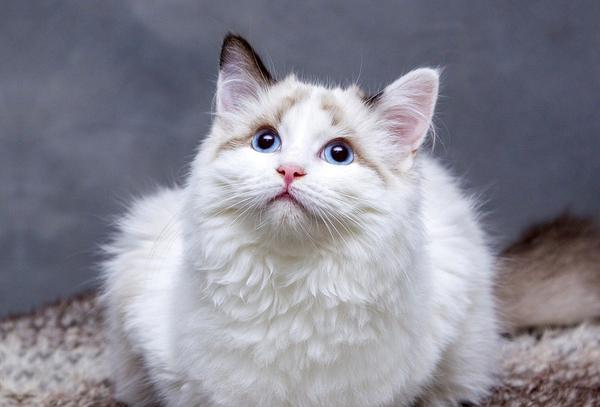
Let's be honest:
You're worried sick about what to feed your furry feline friend. 😿
We know how important their health is to you, and the last thing you want is to harm them unintentionally.
Well, in this I Care for Cats guide, we'll explore the truth about whether cats can safely devour cauliflower or broccoli.
So why wait?
Let's dive in and put your worries to rest once and for all!
Can Cats Safely Eat Cauliflower?
Cauliflower is safe for cats, but in moderation
Have you ever wondered if cauliflower is safe for your cat?
Well, the good news is that it is!
However, you should only give them small amounts.
Cauliflower and broccoli are both harmless to cats.
They won't cause any harm or toxicity.
But remember, cats have specific dietary needs as obligate carnivores.
So cauliflower should only be an occasional treat, not a main part of their diet.
Benefits of cauliflower for cats
Did you know that cauliflower has antioxidants?
These can actually help boost your cat's immune system and keep them healthy.
Also, cauliflower is low in calories and fat, making it a great choice for cats on a weight management program.
By adding small amounts of cauliflower to your cat's diet, you're giving them extra nutrients and health benefits.
How to serve cauliflower to your cat
When giving cauliflower to your furry friend, make sure to steam or boil it first. Raw cauliflower might be hard to digest and could upset their stomach.
Cut the cauliflower into small, bite-sized pieces so it's easy for your cat to eat.
Before serving, remove any leaves or stems.
Cauliflower is only meant to be an occasional treat for your cat.
It shouldn't replace their regular food or be given in large quantities.
Now you know that cauliflower is safe for your cat, as long as you feed it to them in moderation.
Main points I'll expand upon further down this article:
- Broccoli and cauliflower are safe for cats to eat in moderation.
- Cats should avoid overconsumption of vegetables to prevent digestive issues.
- Certain vegetables like onion, garlic, and tomato leaves are toxic to cats.
- Cats have different nutritional needs than humans and dogs, and should primarily consume a meat-based diet.
- Before adding new foods to a cat's diet, consult a veterinarian.
- Cooking vegetables enhances digestibility and should be done before feeding cats.
- Vegetables should make up no more than 10% of a cat's calorie intake.
- Introduce vegetables gradually and in small portions to ensure tolerance.
- Cauliflower and broccoli offer nutritional benefits and contain essential nutrients for cats.
- Joining a cat lovers community on Facebook can provide valuable information.
And now let's move on to broccoli!
I want to share some interesting information about this vegetable and its potential health benefits for cats...
Can Cats Safely Eat Broccoli?
Broccoli has sulforaphane, a compound that may fight cancer in animals. However, we still don't know much about its impact on cats.
But don't fret...
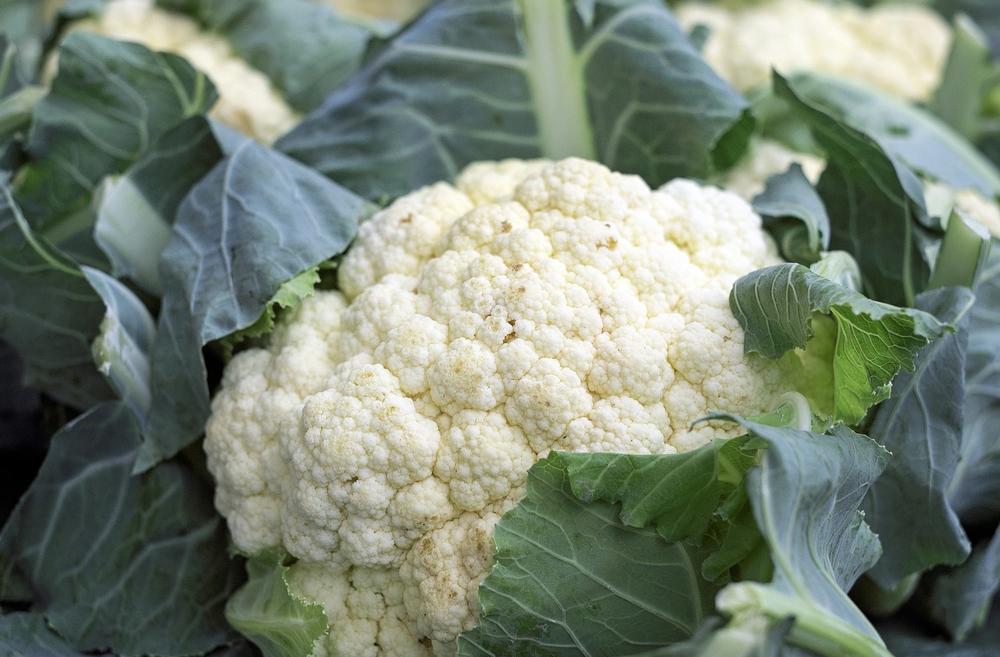
Cats can safely munch on broccoli without issue.
No need for concern!
Just make sure that you serve it to them plain and unseasoned.
Stay au naturel with the greens when feeding your feline friends.
Potential Risks of Feeding Cauliflower and Broccoli to Cats
To keep your cat safe from potential risks associated with cauliflower and broccoli, here are 15 guidelines you should follow:
- Remember, moderation is key.
- You need to be aware that cruciferous vegetables contain substances that can affect a cat's thyroid function.
- Don't go overboard by feeding large amounts of cauliflower and broccoli to your furry friend.
- Take note that these veggies can lead to digestive issues like nausea, vomiting, gas, and bloating for cats.
- Keep in mind that cauliflower and broccoli aren't part of a cat's natural diet.
- Understand that these vegetables have the power to disrupt a cat's digestive system.
- Be cautious about sodium levels if you're thinking of giving canned green beans as a treat.
- Limit spinach intake because it contains calcium oxalate, which isn't great for cats.
- Avoid feeding apples to diabetic cats or ones with sensitive stomachs.
- If you decide on artichokes, make sure they are properly chewed and cooked before giving them to your cat.
- When it comes to asparagus, beets, cabbage, corn cobs, kale, peas, radishes, and raw spinach, practice moderation in feeding.
- Bear in mind that sweet potatoes and certain wild mushrooms can be toxic to cats.
- Steer clear of onions, garlic, chives, leeks, tomato leaves, avocados, raw potatoes, potato skins, lemongrass, iceberg lettuce, eggplants, scallions, and shallots when it comes to feeding your feline.
- Understand that cats need a meat-based diet instead of an all-veggie one.
- Before introducing new foods, consult with a veterinarian and gradually introduce vegetables in small portions to ensure your cat's tolerance.
Oh, and don't forget, always cook mushrooms to avoid any toxicity.
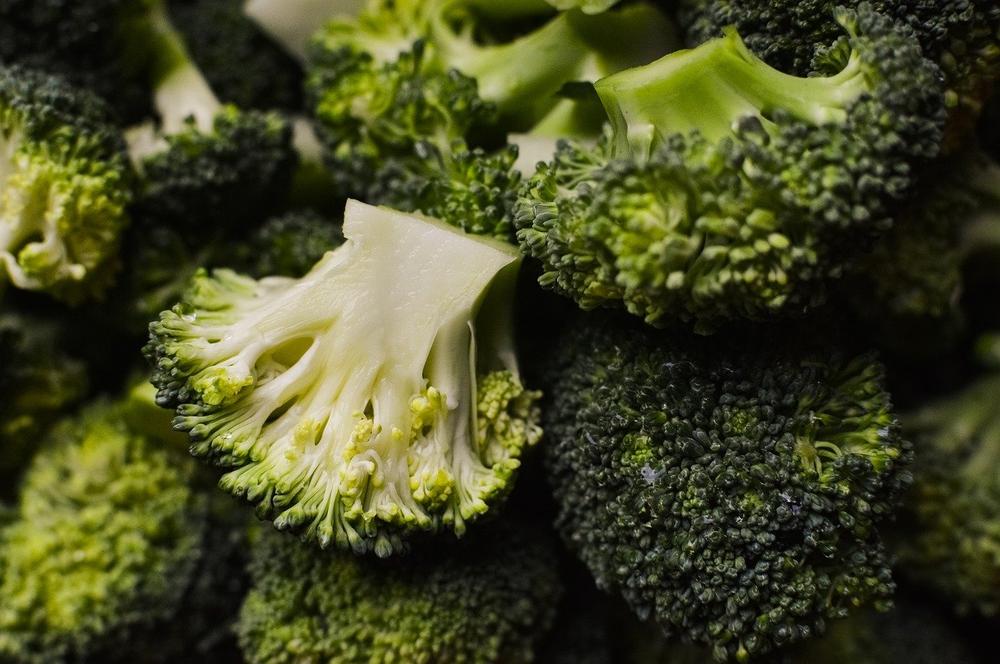
And if you're wondering about the safety of feeding parsley to your feline friend, you'll want to check out my article, Can Cats Eat Parsley.
I highly recommend exploring this guide to learn more about whether parsley is a suitable addition to your cat's diet.
So satisfy your curiosity and find out if parsley can be enjoyed by cats like cauliflower and broccoli.
Health Benefits of Cauliflower and Broccoli for Cats
Cauliflower and broccoli provide a range of health benefits for cats.
- Promote regular bowel movements: The fiber content in these vegetables aids in preventing constipation and keeps the digestive system functioning smoothly.
- Relieve inflammation: Cauliflower, rich in antioxidants, can be beneficial for cats with joint problems as it can help reduce inflammation.
- Anti-cancer effects: Both cauliflower and broccoli contain compounds called glucosinolates, which have anti-cancer properties. Including these vegetables in your cat's diet can provide protection against certain types of cancers.
- Easily digestible: Broccoli is especially easy for cats to digest, making it a great addition to their meals.
- Nutrient-rich: These vegetables are packed with essential nutrients such as vitamin C, vitamin K, potassium, and fiber. Including cauliflower and broccoli in your cat's diet can supplement their nutritional needs.
- Additional vegetable options: In addition to cauliflower and broccoli, consider including other vegetables like spinach, peas, carrots, pumpkin, sweet potatoes, lettuce, and green beans in your cat's diet. These veggies offer vitamins, fiber, and antioxidants.
- Safe herbs and additional vegetables: Some safe herbs and vegetables like celery leaves, asparagus, kale, thyme, basil, and fennel can be given in small amounts to aid digestion, promote weight management, provide antioxidants, and freshen breath for cats.
Including cauliflower, broccoli, and other vegetables in your feline's meals can improve their overall health and overall well-being. 😺
And it gets better...
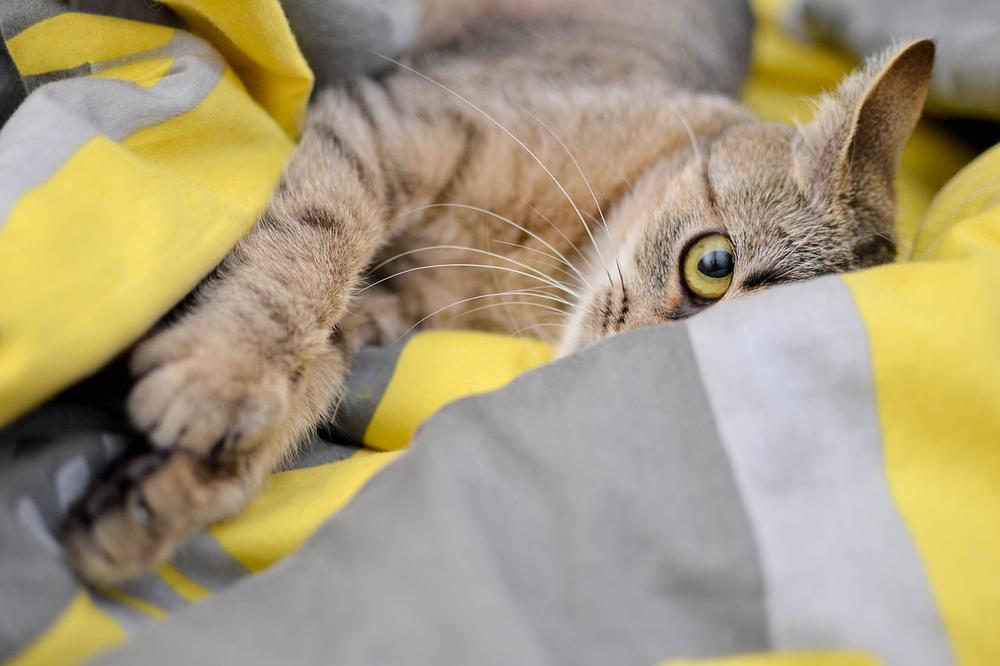
There are even more vegetables that you can incorporate into your cat's diet to enhance their health and well-being.
Let's explore some other safe vegetable options and their benefits for feline friends.
But first, let's dive into the essential considerations when preparing cauliflower and broccoli for cats...
How to Prepare Cauliflower and Broccoli for Cats
If you're thinking of giving cauliflower or broccoli to your cats, here's how you can get them ready:
- To make cauliflower easier for your cats to digest and to retain nutrients, boil or steam it after removing the stem and leaves.
- Feeding cats raw broccoli is not recommended due to digestion problems. Instead, opt for cooked or steamed broccoli. Steaming is better as it keeps more nutrients than boiling.
- For cauliflower, remove the stems and leaves and then boil or steam it. Cut it into small pieces so that it's easy for your cat to eat. Make sure it's completely cooked without any stems or leaves.
- You can do a lot with these vegetables. Bake, steam, cut into small pieces, puree, or mix cauliflower and broccoli in your cat's regular food.
- Take it slow when introducing broccoli to your cat's diet. Gradually add it in so that they can adjust comfortably.
- Cats usually prefer mashed or pureed veggies. So, cook the cauliflower without stems before serving it up.
- Remember to cook carrots, sweet potatoes, artichokes, Brussels sprouts, and tomatoes before feeding them to your cats too.
- Brussels sprouts can be a choking hazard, so soften them by cooking and serve them in small pieces.
- Cooking the vegetables improves their digestibility for cats.
- If you're giving celery, cook it and chop it into smaller pieces for cats who are smaller breeds or eat quickly.
Preparing vegetables might take some effort, but it's worth it for your cat's health!
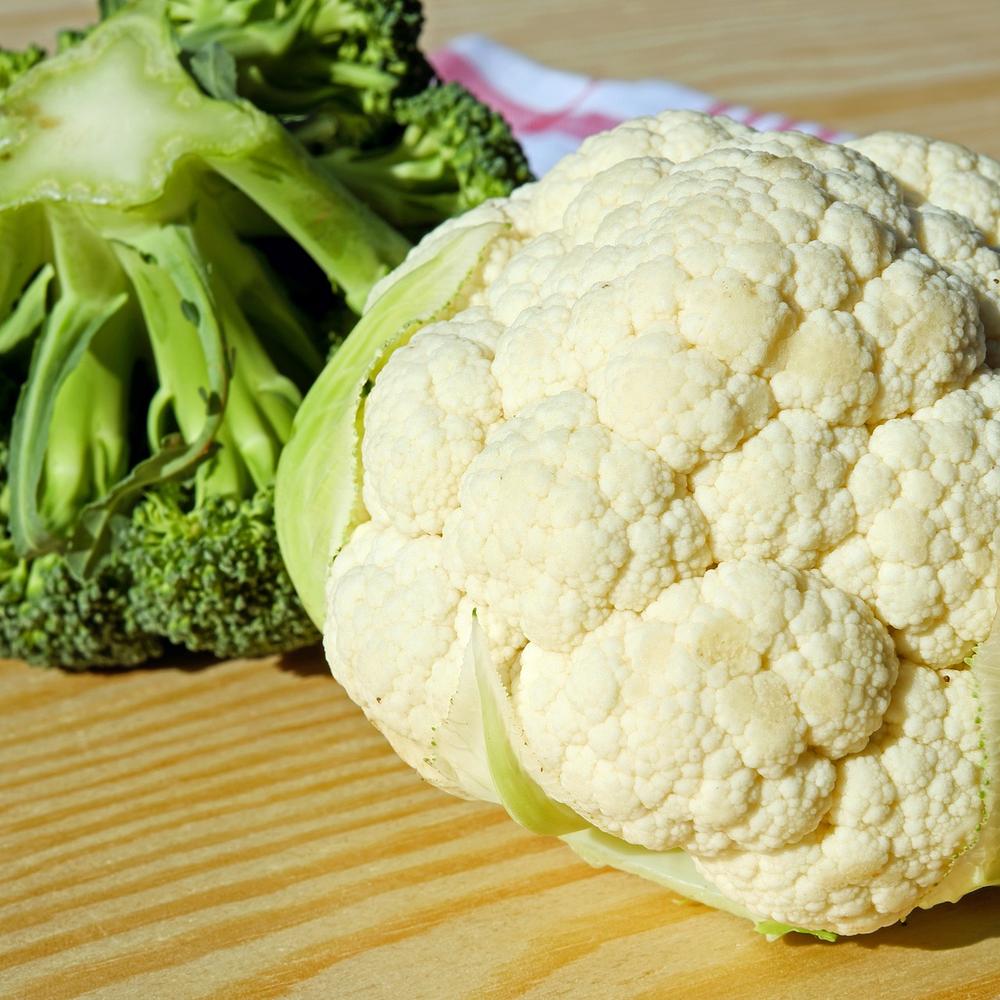
And it gets better...
Not only can cats safely enjoy cauliflower and broccoli, but there are even more surprising vegetables they can try!
Keep reading to discover the unexpected options that your feline friend might love:
Moderation is Key: Feeding Cauliflower and Broccoli to Cats
Feeding cauliflower and broccoli to your cats should be done in moderation.
Give them small portions as a special treat, not regularly.
Cats aren't usually fans of cauliflower anyway, so overeating is unlikely. However, you need to be careful when introducing any human food to your cat. Start with small amounts to avoid stomach problems or fatty kitty syndrome (which means obesity).
Treats and supplements, including vegetables, should only make up 10% of your cat's calorie intake.
Going beyond this limit can lead to unwanted fluffiness.
So, prioritize high-quality cat food and save the veggie treats for occasional indulgence.
And don't forget, cook the cauliflower and broccoli thoroughly to prevent digestive issues.
Remember, vegetables should only account for about 10% of your cat's daily calories.
Now go ahead and pamper your meowing companion!
And that wraps up today's article.
If you wish to read more of my useful articles, I recommend you check out some of these: Can Cats Eat Spinach, Can Cats Eat Basil, Can Cats Eat Thyme, and Can Cats Eat Squid
Talk soon,
-Sarah Davis